Warning: Invalid argument supplied for foreach() in /home/deploy/sites/payspacemagazine.com/wp-content/plugins/psm-ob-quotes/ob-quotes.php on line 150
Representatives from key startup ecosystems from Central and Eastern Europe told what opportunities investors can find on the region’s market

UNIT Investment Summit’18. Source: PaySpaceMagazine
UNIT Investment Summit’18 took place today, on October 16, in Kyiv, Ukraine, as a part of the Kyiv Investment Week. The Summit covered the Central and Eastern Europe (CEE) tech scene, gathering VCs, investors, startups, key ecosystem players, media, GR, and business associations.
PaySpace Magazine attended the event to learn the latest CEE and VC trends and to share them with our audience.
Opening speech
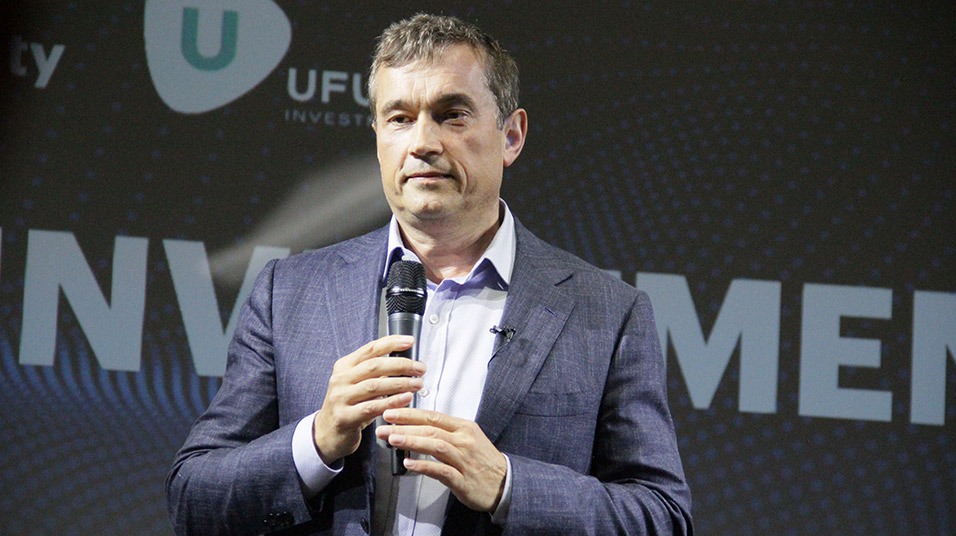
Vasyl Khmelnytsky. Source: PaySpaceMagazine
The event was opened with a short speech about the UNIT.City by Vasyl Khmelnytsky, founder of uFuture Investment Group that operates the first Ukrainian innovation park. As Khmelnytsky explained, UNIT.City is not just about the common space for tech sector players, it is about the ecosystem which allows them to cooperate and develop new products together.
Vasyl Khmelnytsky also gave a piece of advice to those who consider investing in the Ukrainian tech sector. The expert assured there’s no corruption in it, though there are many talented young people. As Ukraine inherited its education system from the Soviet Union, the country has many IT specialists. Nevertheless, they are completely lacking in business skills, so investors should concentrate on training in entrepreneurship skills of their Ukrainian specialists.
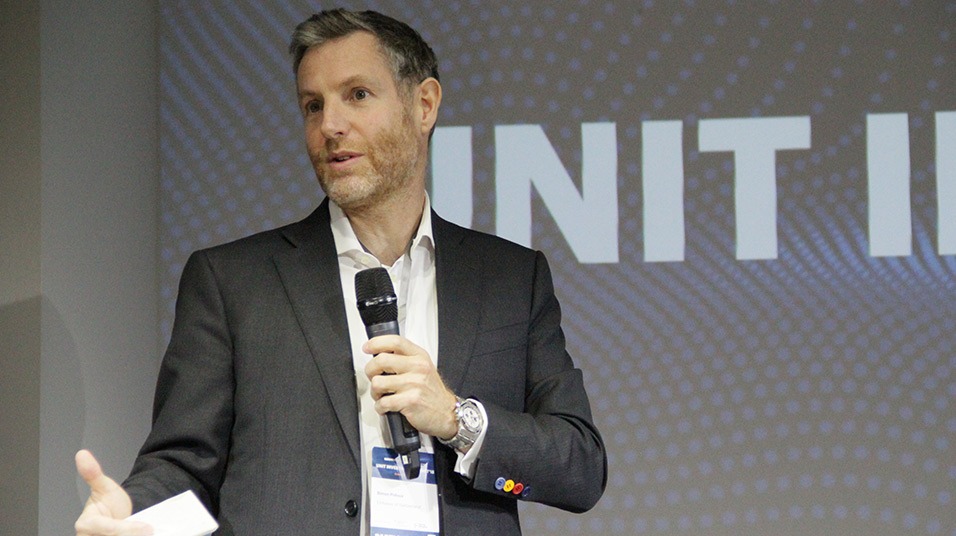
Guillaume Scheurer. Source: PaySpaceMagazine
That statement was supported by the next speaker, Ambassador of Switzerland to Ukraine Guillaume Scheurer, who noted that Switzerland managed to reach economic growth by investing in education.
Global shifts in the world’s entrepreneurship ecosystems
Rick Rasmussen, Director of Startup Programs, Industry Fellow, and Faculty Member at UC Berkeley, provided in-depth coverage of what is happening in the world of venture capital investments and the startup industry.
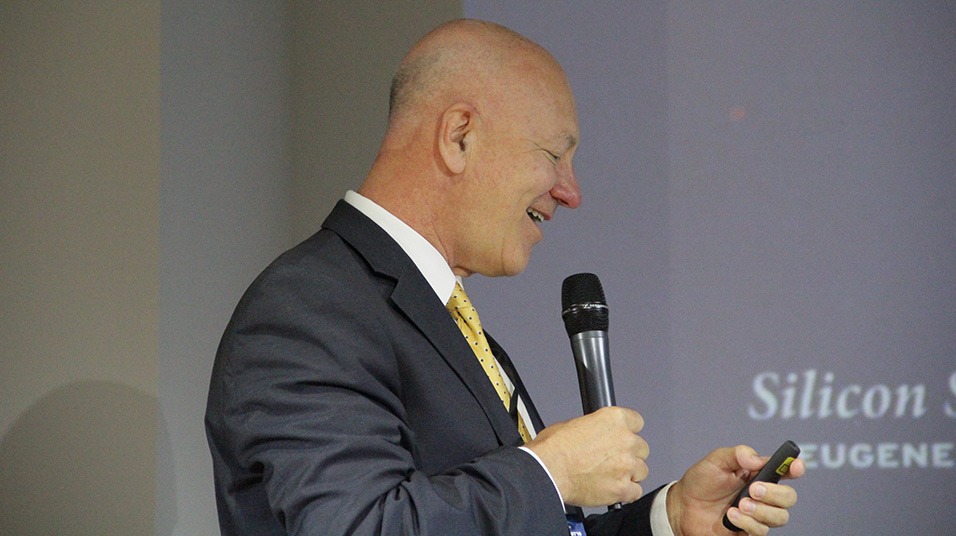
Rick Rasmussen. Source: PaySpaceMagazine
These are some of the key points of his speech:
- The TOP 10 reasons why startups are eager to move to Silicon Valley are electronic warfare, math and science, climate, California mentality, immigration in waves, inventing new business models, sharing culture, boom, and bust, reinvesting the wealth, and minimal government interference.
- According to the 2017 Global Startup Ecosystem Ranking, TOP-10 destinations for young tech projects are Silicon Valley, New York, London, Beijing, Boston, Tel Aviv, Berlin, Shanghai, Los Angeles, and Seattle. Notably, in the 2012 rankings, there were no Chinese cities at all. It means there is a strong trend related to Chinese tech sector development.
- Another important issue is that Silicon Valley no longer leads the race in terms of talent. The first place now goes to Singapore, proving that the Asian region has a lot of opportunities for further growth.
- Furthermore, there was considerable growth in investments outside of California. Startups from elsewhere got more funding in 2016-2017, while there was a decline in funding to US startups compared to the 2014-2015 period.
Blockchain and ICO’s – the new hype or amazing investment opportunity?
Founding Member of the Crypto Valley Association (Switzerland) Ralf Glabischnig introduced his venture and the city of Zug, where a large number of companies engaged in crypto and blockchain industries operate. He also explained what ICO is and how much money ICO projects managed to raise. As of September 2018, the amount was $20.6 billion. The total number of ICOs completed was 769.
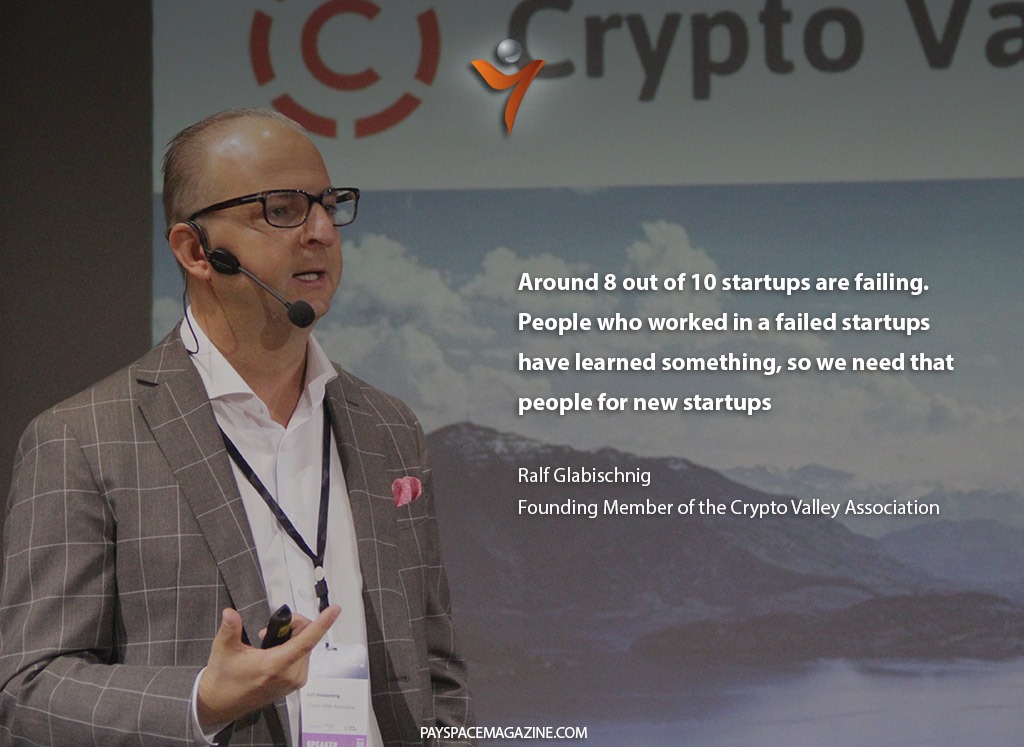
Answering whether or not the crypto industry is worth investing in, Ralf Glabischnig said: «Don’t miss the opportunity to invest in silicon valley 1994».
The Hour of CEE: Ecosystems battle
This part of the event became a platform for representatives from key startup ecosystems from Central and Eastern Europe to give a glimpse into what is happening in their countries and what new opportunities startups, investors and ecosystems could find from the cooperation with each other.
Agahuseyn Ahmadov, regional manager for CEE & Central Asia at Seedstars, presented the Seedstars Index Research insights. He mentioned that the region has around 300 million people, 15% of which is the young population. The GDP growth in the CEE is close to 4.1%. The speaker also noted that there are three pillars of the entrepreneurial ecosystem: culture (mindset, fear of failure, cultural dynamism), environment, and opportunity (talent, funding, market, etc.).
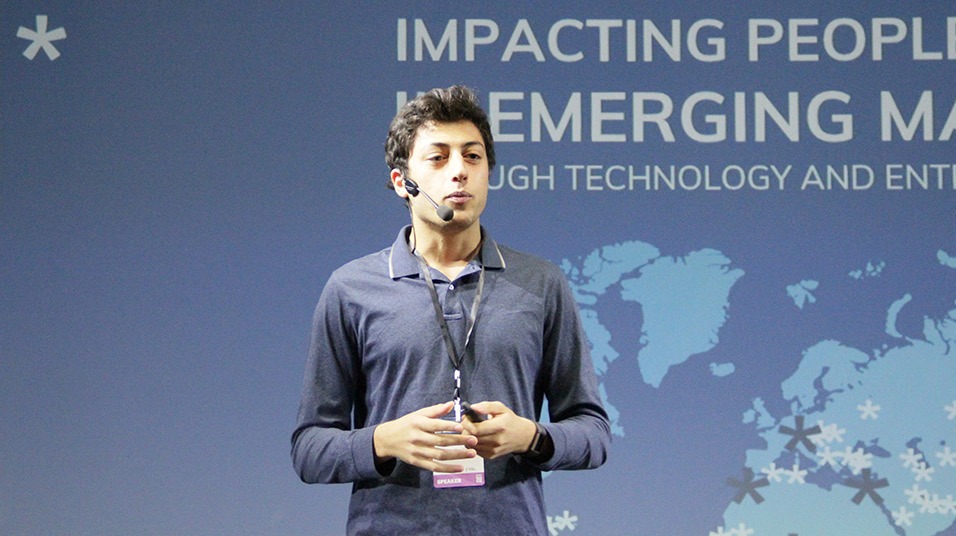
Agahuseyn Ahmadov. Source: PaySpaceMagazine
Kirill Mazur, head of Ecosystem & Partnerships at UNIT.City, presented the Ukrainian startup field, noting its strong and weak sides.
- Strong sides: huge concentration of talents, strong legacy of tech universities, a growing spot for global R&D centers.
- Weak sides: lack of venture financing, too immature corporate innovations, weak global connections, post-outsourcing mindset.
Ukrainian founders created 5 companies close to unicorn status, including GitLab, Grammarly, Ciclum, Rozetka, and SoftServe. Kirill Mazur also mentioned 5 of the biggest Ukrainian ICOs: Neuromation ($76.8 million), Rentberry ($30 million), Dmarket ($25 million), DreamTeam ($6 million), Hacken ($5 million).
Business mentor Irina Dubovik from Belarus introduced the country’s ecosystem map. According to her presentation, there are 1301 companies working in the IT-industry of Belarus, generating around $4 billion in revenue. 67 countries worldwide use software developed in Belarus. Irina Dubovik also gave a glimpse into the recent law «On the development of the digital economy», noting:
- HTP’s special legal status up to 2049;
- tax and national social security fund (NSSF) benefits;
- simplified HTP residents’ activities for foreign trade transactions;
- investment according to English law;
- the set of measures focused on attracting top-ranked IT-specialists: visa and temporary residence;
- an unprecedented regulatory environment for the circulation of cryptocurrencies and tokens.
Maciek Sadowski, co-founder and CEO at StartUp Hub Poland, told a little about the Polish ecosystem but was mainly focused on explaining why the whole region is powerful. The expert believes that talents should circulate all around Europe and that the Polish ecosystem, as well as any other, requires a connection to the rest of the world. He noted that there is a lot of capital in Poland and plenty of programs for startups, though the country is primarily interested in hard tech projects.
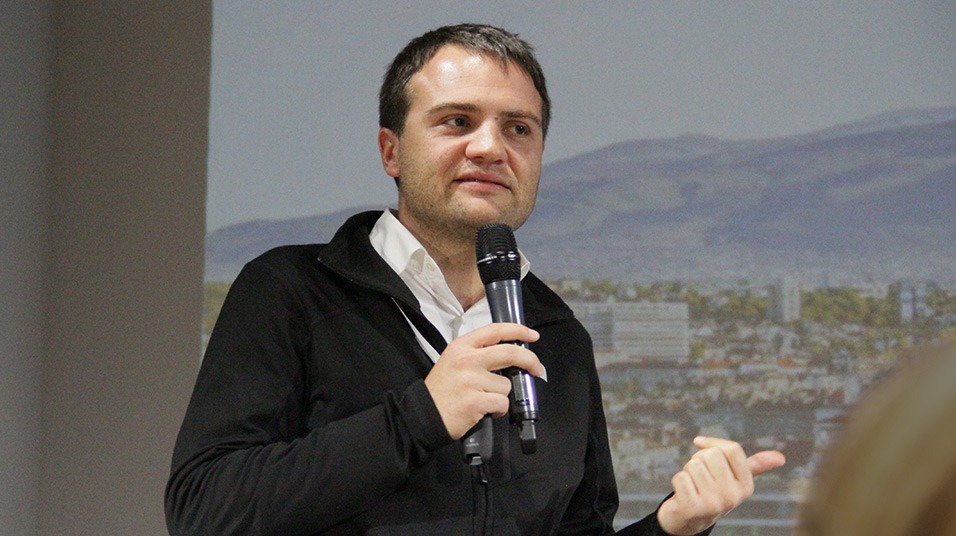
Max Gurvits. Source: PaySpaceMagazine
Max Gurvits, Director for CEE and MENA at Cross Border Angels represented Bulgaria & Balkans. He began his speech with the list of Bulgarian 2018 achievements:
- 100K IT jobs;
- 2% GDP from IT;
- 80 mln euro VC;
- 5000 venture ppl.
He listed tools developed to help other communities: traction camp; entrepreneurship-in-residence; Summit Summit; mobility fund; funding and distribution.
Merilin Lukk, Startup Visa Project Manager at Startup Estonia, presented the Estonian ecosystem in numbers:
- 550 startups;
- 4300 new jobs created;
- Startups paid 35 mln euro in employment taxes (2017);
- Raised over 945 mln euro in the last 12 years (90% foreign funds).
Some Estonian startups have already reached unicorn status (Skype, Playtech, TransferWise, Taxify) and some are on their way (Monese, Pipedrive).
Merilin Lukk also compared two governmental programs: Startup Visa and e-Residency.
|
Startup Visa |
e-Residency |
|
Physical access to the Estonian ecosystem Permit to enter the country Main goal — relocation 800 applications from 80+ countries, 40% success rate |
Virtual access to the Estonian ecosystem Not a permit to enter the country Main goal — ease of doing business remotely by using Estonian e-services 44,000+ e-residents |
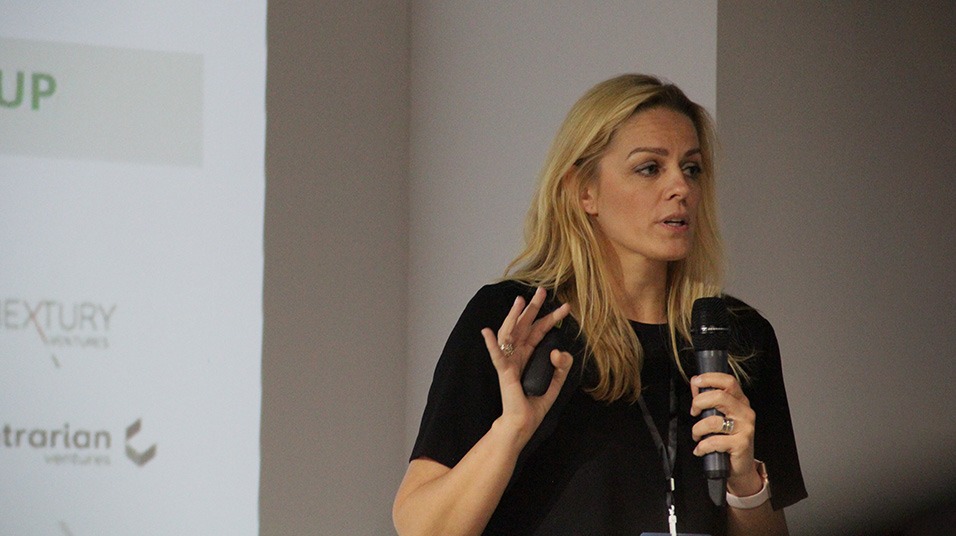
Roberta Rudokienė. Source: PaySpaceMagazine
Roberta Rudokienė, head of Startup Lithuania, said that they are hoping to achieve 500 startups in their database this year. In 2017 there were 380 startups. She mentioned that Lithuania has 7 VC funds, 4 tech parks, and business angels. Country’s startup stars list includes Vinted, Trafi, Oberlo, Tesonet, Deeper, TransferGo, BoredPanda, and Nordcurrent. In 2018 Lithuanian startups already received more than 60 million euro in funding.
SEE ALSO:









